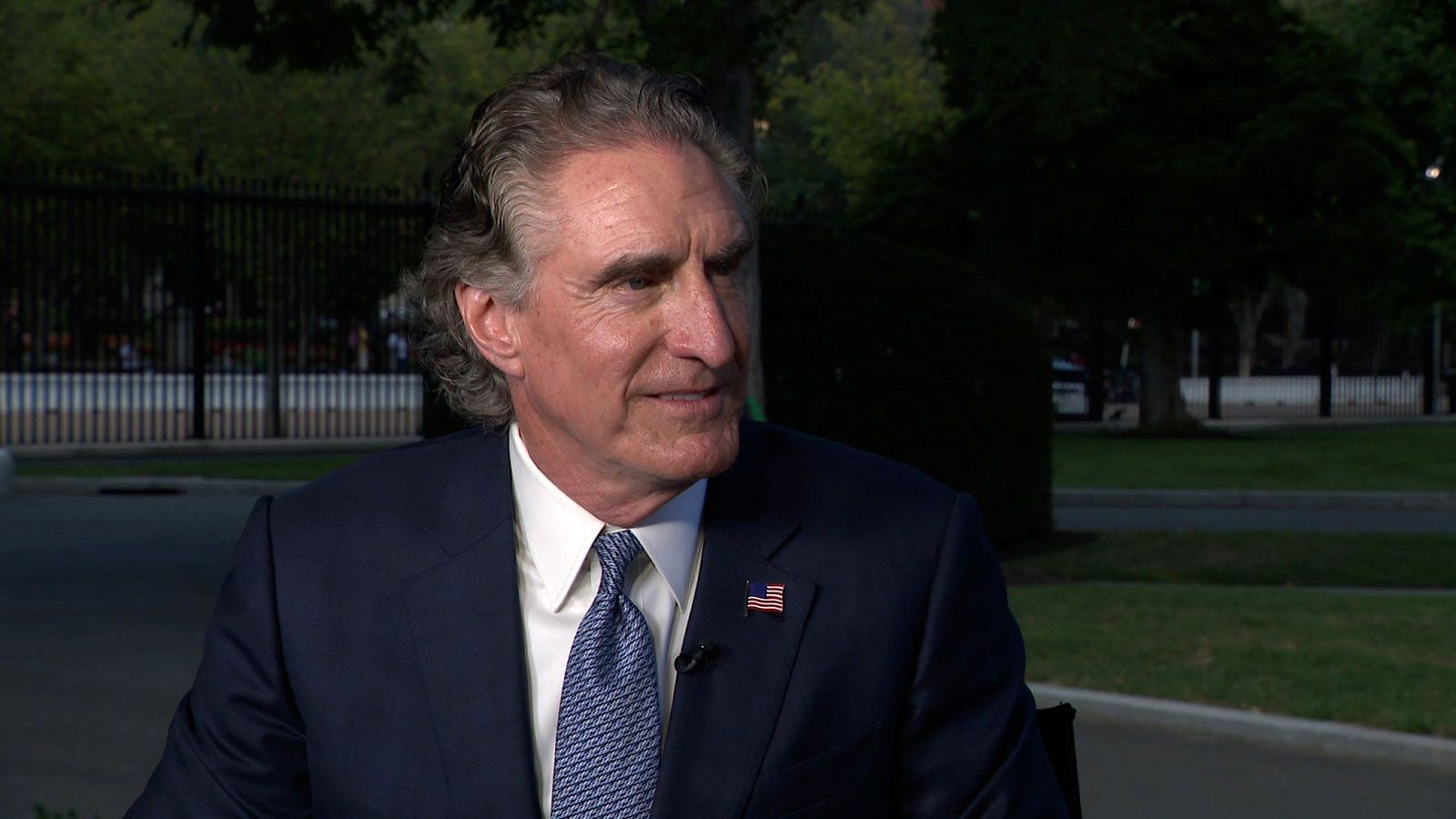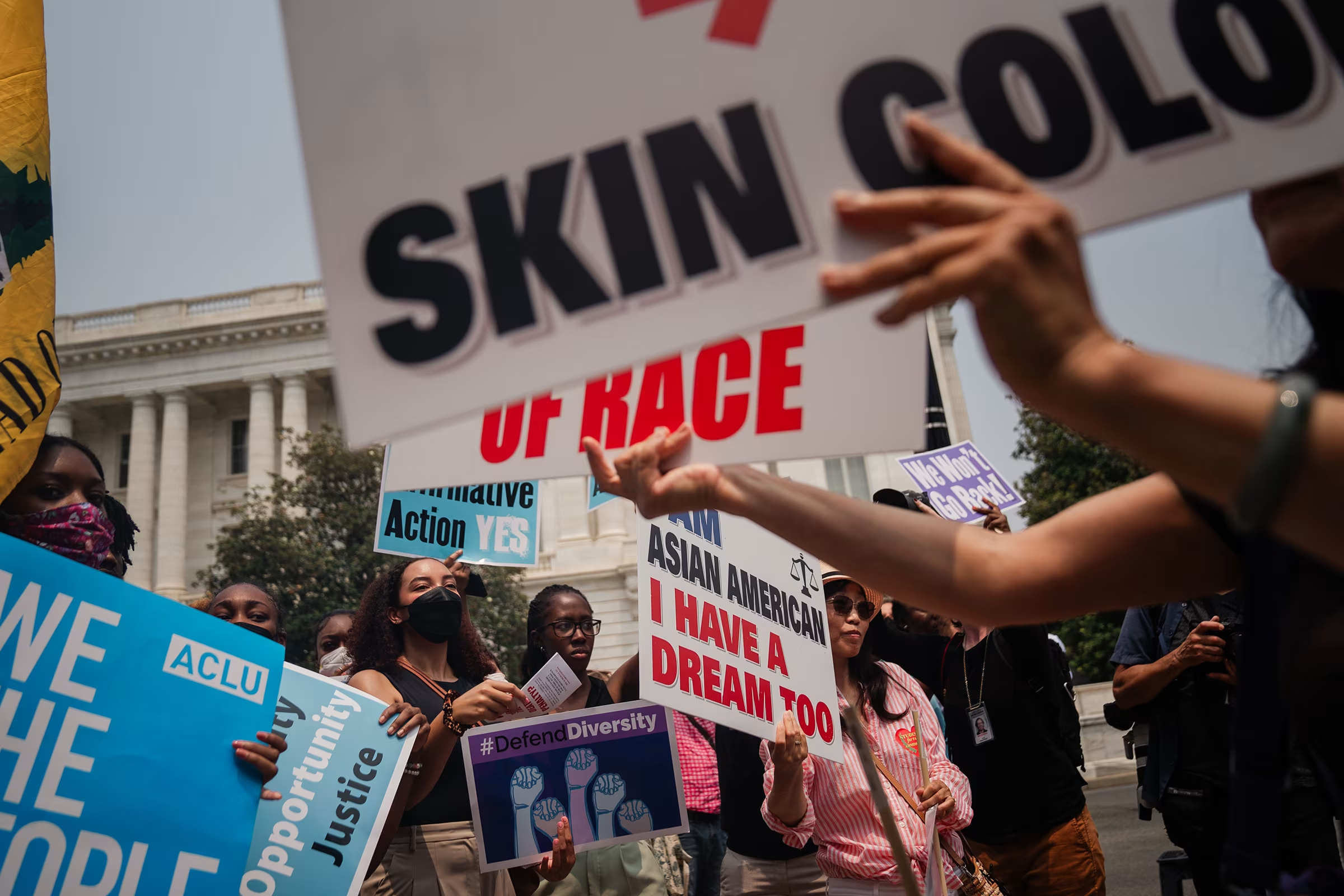
Trump muses about what it would take to strip US World Cup host cities of games just months before the tournament kicks off
Entities mentioned:
- Donald Trump: Power, Control, Influence
- FIFA: Professional pride, Security, Legacy
- Gianni Infantino: Diplomacy, Unity, Professional pride
- Democratic-run cities: Self-preservation, Autonomy, Security
Article Assessment:
Credibility Score: 70/100
Bias Rating: 55/100 (Center)
Sentiment Score: 30/100
Authoritarianism Risk: 65/100 (Authoritarian Tendencies)
Bias Analysis:
The article presents multiple viewpoints, including Trump's statements and FIFA's response. However, it leans slightly critical of Trump's approach, potentially reflecting a slight center-left tilt.
Key metric: International Relations and Soft Power
Let me tell you something, folks - this is a FOURTH QUARTER POWER PLAY like we've never seen before! President Trump is treating these World Cup host cities like they're rookies on the bench, threatening to bench them if they don't play by his rulebook. He's acting like the head coach, calling audibles and trying to restructure the entire game plan just months before kickoff! This is RIDICULOUS! The Democratic cities are on defense, trying to protect their home turf from a federal blitz. Meanwhile, FIFA's caught in the middle like a referee trying to keep control of a heated rivalry match. I'm telling you right now, this kind of political strong-arming could turn the World Cup from a championship celebration into a geopolitical penalty shootout! It's a high-stakes game of chicken that could leave the US's international reputation fumbling on the field!

Burgum says Trump deploying National Guard to Democratic-led cities is not political: ‘He’s not targeting anything’
Entities mentioned:
- Doug Burgum: Loyalty, Duty, Professional pride
- Donald Trump: Control, Power, Influence
- Democratic Party: Self-preservation, Indignation, Justice
- Republican Party: Law and order, Control, Power
- JB Pritzker: Indignation, Self-preservation, Autonomy
- National Guard: Duty, Security, Control
Article Assessment:
Credibility Score: 65/100
Bias Rating: 55/100 (Center)
Sentiment Score: 35/100
Authoritarianism Risk: 65/100 (Authoritarian Tendencies)
Bias Analysis:
The article presents both Republican and Democratic viewpoints, but gives slightly more space to the administration's perspective. It includes some fact-checking of claims, indicating an attempt at balanced reporting.
Key metric: Violent Crime Rate
As a social scientist, I analyze that this article highlights the increasing politicization of law enforcement and public safety measures in the United States. The deployment of the National Guard to Democratic-led cities by a Republican president is framed as a non-partisan move to combat crime, but the underlying political tensions are evident. This action could potentially impact the violent crime rate, but the effectiveness is questionable given the complex nature of urban crime and the potential for increased tensions between federal and local authorities. The article also reveals a growing divide in perceptions of crime and appropriate responses between the two major political parties, which could have long-term implications for national unity and governance.

Trump’s remarkable statement against states’ rights
Entities mentioned:
- Donald Trump: Power, Control, Self-preservation
- Republican Party: Loyalty, Power, Control
- States: Autonomy, Self-preservation, Duty
- Federal Government: Power, Control, Influence
- Congress: Duty, Power, Control
- Obama Administration: Power, Control, Influence
Article Assessment:
Credibility Score: 75/100
Bias Rating: 35/100 (Lean Left)
Sentiment Score: 30/100
Authoritarianism Risk: 65/100 (Authoritarian Tendencies)
Bias Analysis:
The article leans slightly left, evidenced by its critical tone towards Trump and Republican policies. While it presents factual information, the framing and language choices suggest a skeptical view of Trump's actions and their implications.
Key metric: Democratic Institutions Strength
As a social scientist, I analyze that this article highlights a significant shift in the Republican Party's stance on states' rights, particularly under Trump's leadership. The president's attempt to exert federal control over state election processes contradicts long-standing conservative principles of limited federal government. This shift poses potential risks to the balance of power between state and federal governments, a cornerstone of American democracy. The article suggests that Trump's actions and statements reflect a broader pattern of centralizing power, which could weaken democratic institutions and norms. This trend, if continued, may lead to increased political polarization and erosion of trust in the electoral system.

Police and federal agencies scramble to figure out strategy after Trump’s move to declare DC emergency
Entities mentioned:
- Donald Trump: Power, Control, Legacy
- Metropolitan Police Department: Duty, Security, Professional pride
- Muriel Bowser: Autonomy, Duty, Indignation
- Pamela Smith: Professional pride, Duty, Wariness
- Pam Bondi: Duty, Power, Loyalty
- FBI: Duty, Security, Wariness
- DC National Guard: Duty, Security, Obligation
Article Assessment:
Credibility Score: 75/100
Bias Rating: 45/100 (Center)
Sentiment Score: 35/100
Authoritarianism Risk: 65/100 (Authoritarian Tendencies)
Bias Analysis:
The article presents multiple viewpoints, including those of Trump, Bowser, and law enforcement experts. It balances Trump's claims with contradictory data and expert opinions, maintaining a relatively neutral stance.
Key metric: Law Enforcement Effectiveness
As a social scientist, I analyze that this unprecedented federalization of DC's police force raises significant concerns about the balance of power between local and federal authorities. The abrupt nature of the decision, lack of communication, and confusion over roles could potentially decrease law enforcement effectiveness in the short term. The deployment of federal agents unfamiliar with community policing alongside local officers may lead to operational challenges and potentially strained community relations. This move also highlights the unique status of Washington, DC, and its lack of statehood, which allows for such federal intervention. The contrasting crime rate narratives between Trump and Bowser further complicate the situation, making it difficult to assess the true need for this intervention. The 30-day limit on this action suggests it may have limited long-term impact on addressing root causes of crime, as noted by expert Dr. Heidi Bonner.

Trump takes executive action to target race-based university admissions
Entities mentioned:
- Donald Trump: Power, Control, Influence
- Linda McMahon: Duty, Loyalty, Professional pride
- Department of Education: Control, Transparency, Duty
- Supreme Court: Justice, Influence, Legacy
- Universities: Autonomy, Professional pride, Obligation
Article Assessment:
Credibility Score: 75/100
Bias Rating: 55/100 (Center)
Sentiment Score: 45/100
Authoritarianism Risk: 65/100 (Authoritarian Tendencies)
Bias Analysis:
The article presents a relatively balanced view, including both the administration's perspective and context from recent court decisions. However, there's a slight lean towards the administration's framing of the issue, with limited space given to opposing viewpoints or potential criticisms of the policy.
Key metric: Higher Education Equity and Access
As a social scientist, I analyze that this executive action represents a significant shift in higher education policy, potentially impacting diversity and access in American universities. The move to expand data collection on race-based admissions follows the Supreme Court's decision to restrict race-conscious admissions practices. This action may lead to increased scrutiny of university admissions processes and could potentially influence future policy decisions regarding affirmative action and diversity initiatives in higher education. The emphasis on 'meritocracy and excellence' in McMahon's statement suggests a shift away from considering racial diversity as a factor in admissions, which could have far-reaching consequences for minority representation in higher education institutions.